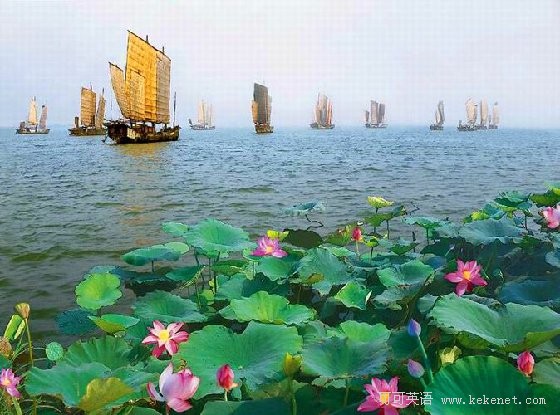无锡,是一座具有三千多年历史的江南名城。是吴文化的发源地、中国民族工商业的发祥地,是“二泉映月”响起的地方,也是当今中国最具经济活力的城市和首批十大中国优秀旅游城市之一、国家历史文化名城、国家森林城市、全国假日旅游重点城市。这里山明水秀、环境优美,人文荟萃、经济发达,素有“太湖明珠”和“小上海”的美誉。

Initiated by Eastern China's city of Wuxi, China will soon have its own national Tourism Day. Though the exact date is yet to be decided, increasing support backs the third day of the third lunar month in honor of the great Chinese traveler Xu Jiake, who lived some 400 years ago. This date is when Xu started his famous journey around the country, and it is also the Tourism Day of Wuxi, the nearest big city to the birthplace of the great traveler in Jiangyin in Zhejiang Province.
In this edition of On the Road, we'll take a trip to Wuxi, a city that is closely related to the great traveler of China. Here's our guide Wu Jia.
Just 130 kilometers west of Shanghai, Wuxi is located on one of the most fertile pieces of land between the Yangtze River and the Taihu Lake. Known in ancient times as a Town of Fish and Rice, Wuxi boasts abundant aquatic and agricultural resources and is dubbed Minor Shanghai for its affluent lifestyles. With outstanding natural beauty and a history of 3,000 years, Wuxi is one of the top ten tourism cities in China, attracting millions of visitors from home and abroad each year.
One of its most popular attractions, the Lihu Lake, is where the city's biggest ecological park is located. The lake got its name after the ancient scholar Fan Li, who lived some 2,500 years ago, and his girlfriend, Xishi, known as one of the top four beauties in Chinese history.
The park features dozens of scenic spots, both natural and manmade, that are open to tourists free of charge.
Xiao Zhao is a tourist from Hangzhou, the provincial capital. She says she is most impressed by the night landscapes at the lake.
"The lake looks extremely attractive at night when the colorful neon lights reflect on the water. The giant Ferris wheel over there is clearly seen and it is marvelous."












